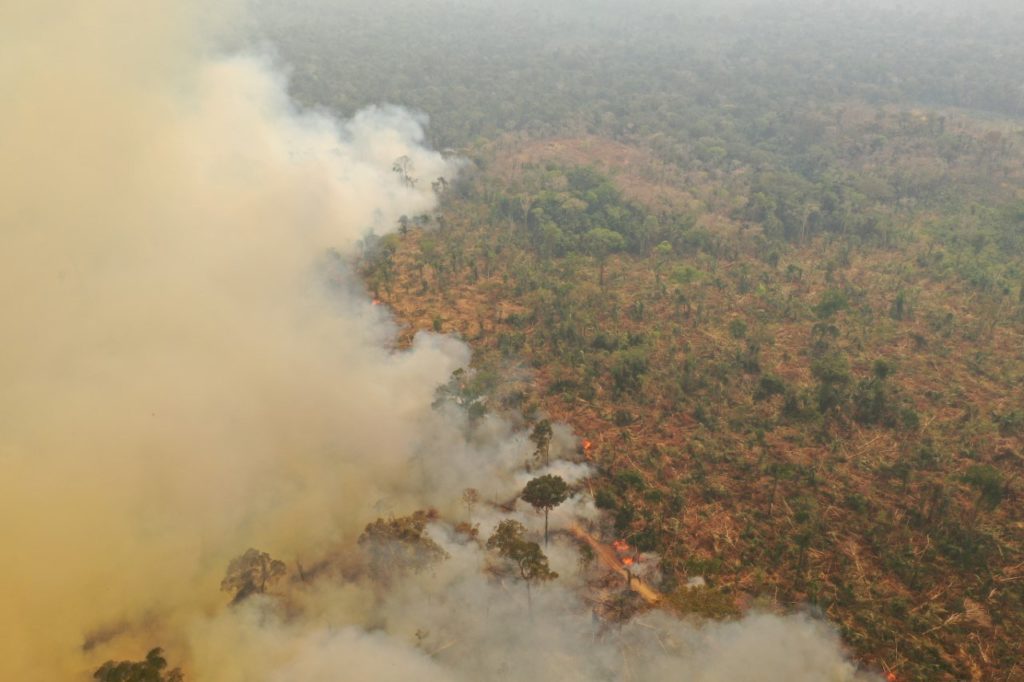An expert panel brought together by the Stop Ecocide Foundation proposed last June to amend the statutes of the International Criminal Court (ICC) and include ecocide alongside other international crimes such as war crimes, crimes against humanity and genocide.
The independent expert panel of top international criminal and environmental lawyers from around the world spent sixth months drafting definition of “ecocide” as a potential 5th crime under the Rome Statute of the ICC.
A new article was proposed to be added to the Statue where ecocide is defines as follows:
“For the purpose of this Statute, “ecocide” means unlawful or wanton acts committed with knowledge that there is a substantial likelihood of severe and either widespread or long-term damage to the environment being caused by those acts.”
According to the proposal, two thresholds need to be met for the court to start investigating alleged ecocide.
The first is that an act has been committed with knowledge that there is a substantial likelihood of damage. The other one is that the act is unlawful in domestic or international law or wanton, meaning that it has been committed with reckless disregard for damage which would be clearly excessive in relation to the social and economic benefits anticipated.
The international movement for the recognition of ecocide is gaining political traction. The Belgian parliament, for example, has adopted a resolution aimed at recognising an international crime of ecocide.
The parliament calls on Belgium to " take the initiative of creating a group of leading states responsible for preparing the drafting of a new international convention on the prosecution of the crime of ecocide and to propose negotiations at the international level in order to implement the principle of complementarity on which the Rome Statute rests”.
At a webinar arranged by the Stop Ecocide Foundation this week (7 December), panellists discussed how the definition can be implemented and change the behaviour of individuals, corporations and states. The ICC has jurisdiction only over individuals but the proposed legislation against ecocide is expected to have a preventive effect also on corporations and states.
At the webinar, the two co-chairs of the panel, Law professor Philippe Sands and UN jurist Dior Fall Sow, were joined by voices from countries at the forefront of the movement to recognise ecocide at the ICC.
Prime Minister Fiamē Naomi Mataʻafa, Samoa said that her country is negotiating for its survival against ecological destruction and climate breakdown. MP Saber Hossain Chowdhury, Bangladesh, warned that 40 million people in the coastal areas in his country would be displaced if the sea level will rise by one meter. “Our planet is our only home. There is no planet B.”
ICC can only hold individuals accountable. While the UN convention on the prevention and punishment of the crime of genocide defines the crime as killing committed “with the intent to destroy, in whole or in part, a national, ethnical, racial or religious group”, the proposed crime of ecocide does not require proof of intention.
At the recent climate change conference in Glasgow, progress on international legislation against ecocide was largely under the radar. The European Commission did not take any initiative to propose such legislation to transfer “legal personality to Mother Nature”, Commission Vice-President Frans Timmermans said at a press briefing in Brussels after the conference.
However, less than a week after the conference, the Commission adopted new initiatives to make the European Green Deal a reality, including a revision of a directive from 2008 on the protection of the environment through criminal law. The directive was found after an evaluation not to meet its objectives.
Among the current minimum requirements to be implemented in national criminal laws, EU member must ensure that legal persons can be held liable for offences committed for their benefit. This responsibility can be of criminal or other nature.
Is it a weakness in the proposal for legislation against ecocide that it only targets individuals and not companies? Is there a realistic alternative to ICC for international legislation against ecocide?
“On the contrary, we see the focus on individuals as absolutely key in the deterrent and preventive potential of the ICC route,” Jojo Mehta, chair of the Stop Ecocide Foundation, told The Brussels Times.
“Corporate decisions are ultimately made by individuals. All too often those decision makers are able to hide behind the ‘corporate veil’ - and the company is fined, leaving the decision makers more or less untouched. One cannot, after all, jail a company.”
“However, when a decision maker's own personal freedom and criminal record may be on the line for decisions he or she makes, this could profoundly affect that person's life and prospects as well as seriously damaging corporate reputation,” she added.
“It has a way of concentrating the mind and having corporate due diligence start to move in the right direction, away from ‘how far can we get away with polluting without crossing a regulatory line?’ to something more like ‘how can we ensure we do not seriously endanger ecosystems with our practices?’”
M. Apelblat
The Brussels Times

